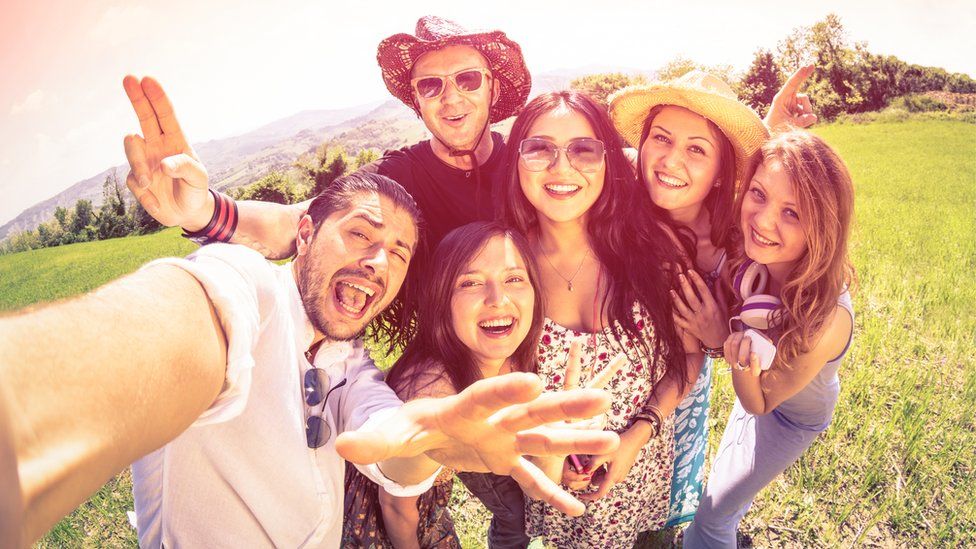Picture perfect: How helpful is social media for our mental health?
- Published

Whether it's capturing a picturesque view, a cute pet or a perfect-looking plate of food, many photographs on Instagram give the impression that life is beautiful. But according to new research images posted on the social network may actually reveal if someone is struggling with depression.
Posting photos that are blue, grey or dark in colour and using the "Inkwell" filter, which converts colour photos to black and white are all clues according to the Harvard study.
The researchers believe the photo-sharing app could be a new form of early detection for mental illness, but is the culture for over-sharing and bragging on social media also to blame for making us feel down in the first place?
A previous study by two German universities showed that "passive following" on Facebook triggers feelings of envy and resentment in many users, with holiday snaps being the worst offenders.
But according to author and journalist Jessica Winter, "Facebook is actually not the greatest underminer at the social-media cocktail party... That title goes to Instagram," she says, where the trend for beautiful, filtered selfies and picture-perfect lifestyles reaches a whole other level.
Comedian Juliette Burton, who has struggled with body dysmorphia, depression and anxiety, agrees that social media can be unhelpful.
"They say a picture is worth a thousand words but it's never the full story," she says. "You don't know what else is going on behind this collage of pictures. Being on social media is this whole new expression of our personality, messaging about who we are, but we're still learning what it all means.
"In my experience social media is a hindrance when it all feels very fake and competitive. It's very rare to see people posting about dark stuff. When they do it's a massive cry for help.
"When you're in the middle of a difficult time and you can't get out of bed, these aren't the moments that I'm reaching for my camera phone."
When the going gets tough it's natural to frantically search for answers online, wishing you were as positive as those #instagood moments.
But Bryony Gordon, journalist and author of the book Mad Girl, says there is some solace among the selfies.
She set up the group Mental Health Mates through social media after battling with OCD, depression and bulimia.
"I felt completely alone, just like everyone else who suffers from mental illness - because mental illness lies to you by making you feel like a freak.
"Only through writing about it have I realised that actually, it's completely normal to feel weird."
After putting a message on Twitter about meeting up with others who struggle with mental health issues, Bryony said 20 people turned up for a walk. Now many gatherings later there are a whole network of people meeting up, with groups even starting up in the US.
So can social media have health benefits?
Bryony says: "Through the power of social media I've met so many new people and it's a great support. It shouldn't be your only point of help but it's that jumping off point to help you realise you are not alone. "
Juliette thinks so too. "It's interesting to hear about the Instagram study because we need to work out how we can use this technology to its full potential," she says.
"At the same time people are wanting to talk about mental health much more now. Even if you don't suffer yourself just knowing how to bring it up with someone and learning about the right and wrong things to say is a really positive step."
- Published26 August 2016
- Published11 September 2015
- Published7 November 2015
- Published18 February 2016